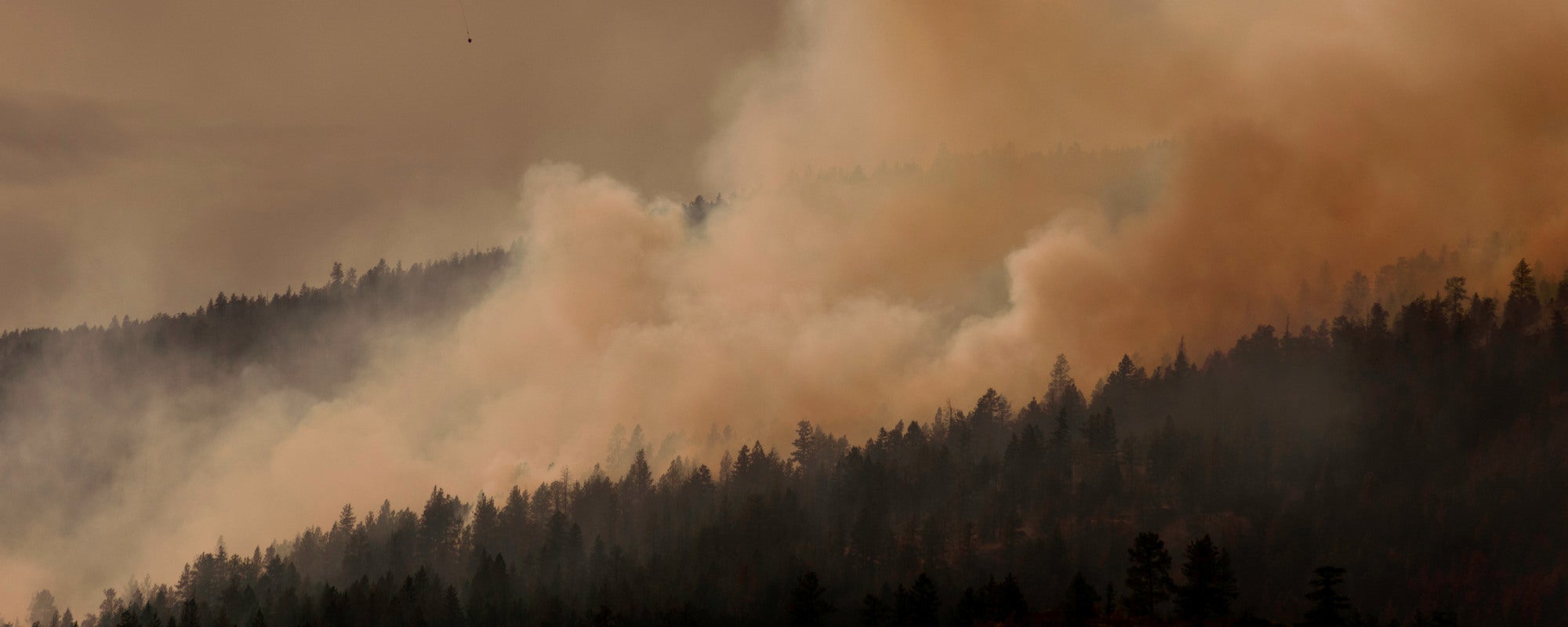
With climate change conditions favouring the spread of wildfires in Canada – even increasingly affecting the north and subarctic regions in Canada – it is important to address the impact of fire and smoke on the mental health and livelihoods of northern populations, says public health professor Warren Dodd.
Dodd was the lead researcher in a study that interviewed individuals in four Northwest Territories communities who were affected by the 2014 wildfire season. The study, “Lived experience of a record wildfire season in the Northwest Territories, Canada,” was published in the Canadian Journal of Public Health this May.
Dodd and his co-authors found that the interviewees’ experiences of evacuation and isolation, as well as related stress and uncertainty, had long-term negative effects on their mental and emotional well-being.
“Wildfires and wildfire smoke are pressing public health and environmental threats in Canada, Dodd said. “In particular, the fires of 2014 compounded existing challenges to people’s livelihoods and food security, and had long-term implications for individuals engaged in subsistence hunting and fishing.”
The study noted that individuals exposed to prolonged wildfires and smoke found themselves staying indoors to avoid physical discomfort, which resulted in increased isolation and anxiety over the long term because of the uncertainty surrounding future wildfire seasons, and whether this is “the new norm.”
Dodd said there is a need for improved risk communication and adaptation initiatives that take into account local knowledge and values to address similar events in the future for communities exposed to prolonged wildfires and smoke.
The article was published with co-authors Patrick Scott, Courtney Howard, Craig Scott, Caren Rose, Ashlee Cunsolo and James Orbinski.
- Visit The Star (Calgary) to read “The rise of eco-anxiety: How smoke in Alberta might affect your mental health.”
- Visit The Narwhal to read ‘The lost summer’: the emotional and spiritual toll of the smoke apocalypse